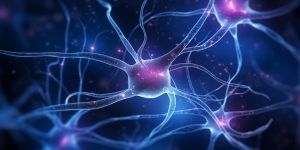
£2m electrical earpiece trial for stroke patients
Stroke is one of the leading causes of death and long-term disability in the UK – affecting over 120,000 people every year.
Of the UK’s 1.3 million stroke survivors, one third are living with permanent arm weakness which limits their daily activities. Now a new £2 million trial will test whether a device which delivers electrical pulses to the brain through an earpiece can help people regain strength.
Run in partnership with Sheffield Teaching Hospitals NHS Foundation Trust, researchers from the Universities of Sheffield, Nottingham and Glasgow will test the Triceps treatment on 243 patients from 15 UK stroke centres over the next two years.
Arshad Majid, Sheffield’s Professor of Cerebrovascular Neurology and chief investigator of the trial said: “Triceps aims to establish whether the treatment could be delivered without the need for surgery. If it could be self-administered at home, far more people would benefit.”
The trial is funded by a partnership between the National Institute for Health and Care Research and the Medical Research Council and the Association of British Neurologists Fellowship (co-funded by the Stroke Association and Berkeley Foundation).































